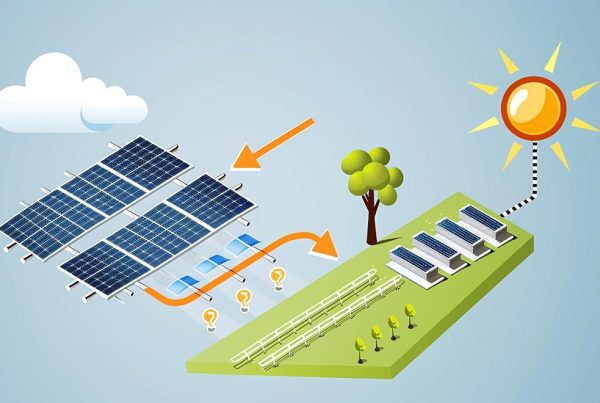Role of Hydrogen
Since 1880, the global temperature has risen by 1.1 degrees Centigrade. Climate change exposes us to various risks, including natural disasters, health crises, food shortages, economic instability, and disruptions to supply chains.
There is a global commitment to limit temperature rise to ideally 1.5 degrees centigrade – this is the only way to sustain and survive. Clearly, we need to make this world a better place to live in for future generations.
A temperature rise of more than 1.5 degrees could be perilous and have irreversible effects. Mitigation of climate change would require a rapid reduction of CO2 and other harmful emissions; technology and regulations will play a key role.
Hydrogen is the most talked-about low-carbon fuel, which could potentially contribute to creating a sustainable world and help us achieve the United Nations’ global agenda of Sustainable Development Goals. Interestingly, hydrogen has been in existence since time immemorial in the form of water, and it was around 150 years ago that the electrolyser was invented, which separates hydrogen from water for use as a fuel.
In compliance with the 2015 Paris Agreement, hydrogen is an attractive option for reducing emissions and mitigating global warming, helping to achieve the targets set in the Sustainable Development Goals on Climate Action, particularly SDG 13.
Decarbonisation and Deregulation will result in an energy shift, and this is an opportunity to innovate energy solutions, keeping hydrogen at its core.
Why Hydrogen
Host to six of the ten most polluted cities in the world, India aims to use technologies based on hydrogen to revolutionise its energy market.
We have realised the importance of building climate-resilient infrastructure, and this is perhaps the only choice to protect ourselves from the next possible health crisis.
India has an ambition of achieving energy security and environmental sustainability. The Government of India has set an ambitious target of establishing 450 GW of renewable energy plants by 2030.
Clean hydrogen and hydrogen-based fuels can significantly contribute to achieving net-zero carbon emissions by complementing and enhancing the use of renewable energy sources for electricity production.
Fuel cells use hydrogen to produce energy, and in recent years, their usage in the transportation sector has been on the rise, particularly in Europe, Japan and the US. India has also recently witnessed the launch of fuel cell-based vehicles, which will use hydrogen as fuel, thereby spurring demand for hydrogen refuelling stations.
With the advent of technology, we are confident that within the next few years, we will witness the widespread adoption of hydrogen as an energy solution, whether in distributed energy or other applications.
Economics of Hydrogen
Hydrogen produced from renewables, i.e. green hydrogen, is an ideal solution as it is close to zero carbon. Blue hydrogen from natural gas would also play a role, as natural gas is also a relatively low-carbon fuel.
The cost of processing low-carbon hydrogen remains an impediment. The cost of grey and blue hydrogen ranges between Rs 115 and Rs 160 per kg; however, the focus is on developing and adopting the use of green hydrogen, whose current costs range from Rs 300 to Rs 450 per kg.
Green hydrogen presents a significant opportunity for our country, as India has made a substantial commitment to adopting renewable energy. The fact that the cost of solar power has reached Rs 2 per unit, which is indeed very competitive, supports the business case for investing in Green Hydrogen.
Hydrogen produced in this manner can be utilised across various sectors, including steel, chemicals, marine, trucks, cement, manufacturing, cars, heating, peak power generation, and residential buildings.
Recently, hydrogen-fueled buses and cars have been launched in India. Many states in India are launching pilot projects to promote the use of hydrogen as a fuel for transportation. The Government of India is also exploring the launch of pilot projects for using hydrogen as a fuel and for energy storage in stationary power applications.
Hydrogen – Sustainable Solution
Imagine cities in India having hydrogen as the sole source of energy for both transportation and stationary power applications – this meets the objectives of decarbonization as well as energy security, and would be like a dream come true.
Across the value chain, there will be demand for the production, transportation, and storage of hydrogen, as well as the manufacturing of electrolysers, fuel cells, and various other related components.
Spending on renewable energy and green hydrogen will create more jobs than spending on any other fuels.
Hydrogen is expected to become the new normal by 2035, and the opportunities within the ecosystem will contribute to the high growth of the energy industry and the country’s GDP.
The Hydrogen Council estimates that by 2050, a quarter of the global energy requirements will be met using hydrogen as a fuel.
Roadmap of Hydrogen
India will promote the use of hydrogen as a fuel. As the first step, policy interventions are expected to facilitate the adoption of green hydrogen for use in the transportation sector, including cars, trucks, and railways.
Hydrogen will play a crucial role in shifting the electricity market toward renewables, as it serves as an alternative solution to energy storage. Our country won’t need to depend on the import of lithium-ion batteries or other intermediaries used in current energy storage solutions.
The ability to transport hydrogen will also become a consideration for planning future gas infrastructure in India, as hydrogen blended with CNG, known as HCNG, contributes to the promotion of lower-carbon fuels.
A hydrogen-based energy transition is anticipated, although it may take up to five years for hydrogen to become a competitive fuel and storage option. Hydrogen represents a complementary solution that is relevant for nations committed to meeting their climate change objectives.




